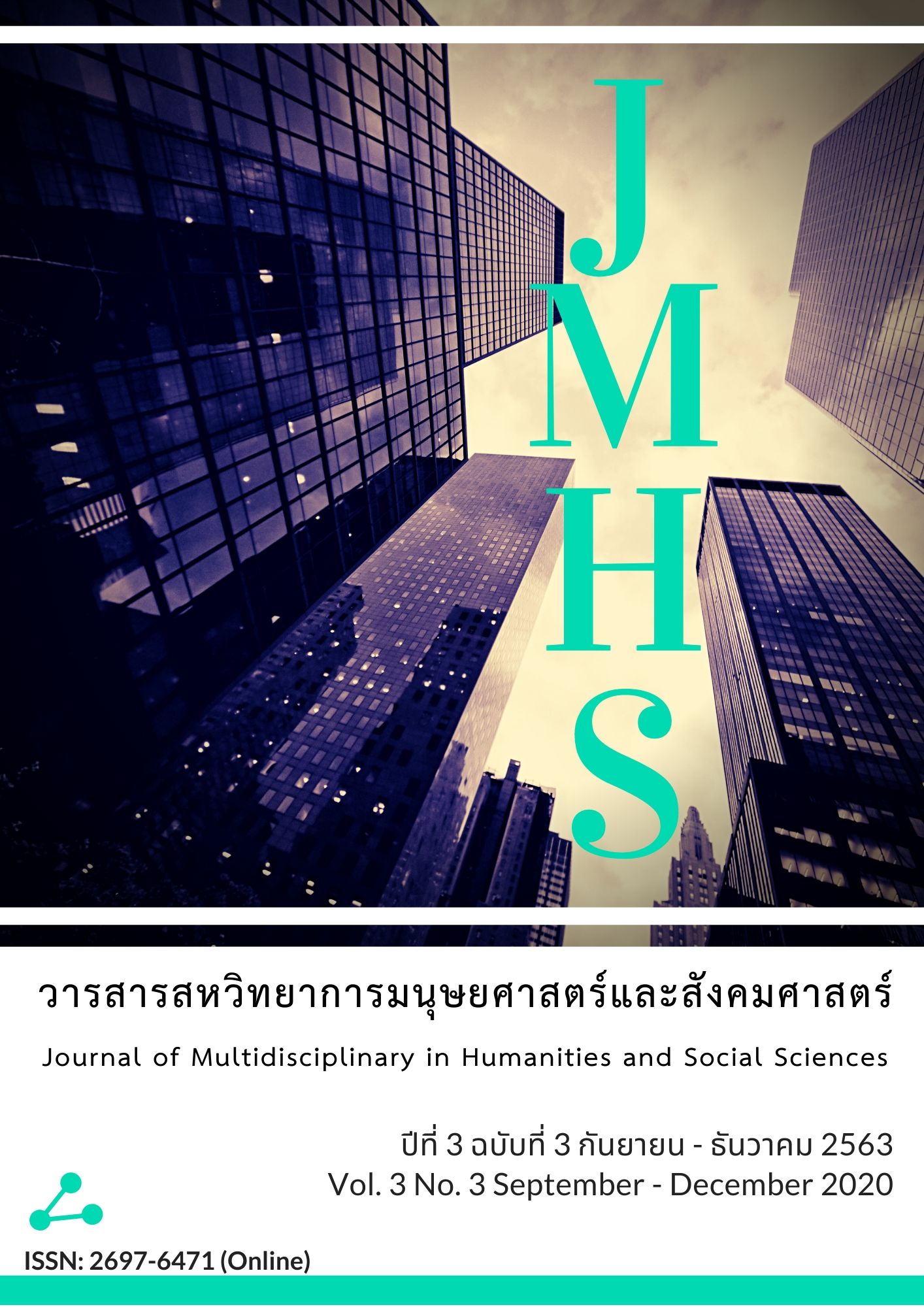Modeling the Impact of Student Centered Learning Management and Analytical thinking of Primary School Students in Bangkok Metropolitan Region
Main Article Content
Abstract
The purposes of this study were 1) to study the level of analytical thinking ability of primary school students in Bangkok Metropolitan region; 2) to group students based on the level of analytical thinking abilities; 3) to analyze a latent group of analytical thinking abilities of primary school students in Bangkok Metropolitan Region; and 4) to study the model of the causal relationship between Student-Centered Learning Management factors, student level factors and school level factors on analytical thinking abilities of primary school students in Bangkok Metropolitan Region. The sample was used 1,600 multi-stage random sampling. The survey instruments were 3 questionnaires and tests.
The research results were found as follows; 1) The level of analytical thinking ability of primary school students in Bangkok Metropolitan Region had a good average score (= 15.11, 75.55%); 2) The results of the analysis of latent groups based on the level of analytical abilities found that students can be classified into 3 groups; 3) Classification of latent groups of analytical thinking founds that the relationships between latent groups of analytical thinking ability had a relationship with the province; and 4) The model of the causal relationship between students centered learning management factors, targeting strategy factor, thinking strategy factor, the understanding that influence student’s analytical ability in student level and school level found that the model which the researcher created was consistent with the empirical data.
Knowledge/Finding from this research currently. Student centered learners, cognitive strategy, and goal setting which indirectly influenced from student-centered learning management through cognitive strategy variables, cognition and goal setting variables with statistically significant.
Article Details
Views and opinions appearing in the Journal it is the responsibility of the author of the article, and does not constitute the view and responsibility of the editorial team.
References
คณะอนุกรรมการปฏิรูปการเรียนรู้. (2543). ปฏิรูปการเรียนรู้ ผู้เรียนสำคัญที่สุด (พิมพ์ครั้งที่ 5). กรุงเทพฯ: สำนักงานคณะกรรมการการศึกษาแห่งชาติ.
จันทรานี สงวนนาม. (2545). ทฤษฎีแนวปฏิบัติการบริหารสถานศึกษา. กรุงเทพฯ: บุ๊ค พอยท์.
ทิศนา แขมมณี และคณะ. (2544). วิทยาการด้านการคิด. กรุงเทพฯ: เดอะมาสเตอร์กรุ๊ป แมนเนจเม้นท์.
ทิศนา แขมมณี และคณะ. (2547). การวิจัยและพัฒนารูปแบบการปฏิรูปการเรียนรู้ทั้งโรงเรียน.กรุงเทพฯ: คณะครุศาสตร์ จุฬาลงกรณ์มหาวิทยาลัย.
เพ็ญแข ประจนปัจจนึก. (2536). รูปแบบการอบรมเลี้ยงดูกับความสามารถในการแก้ปัญหา. กรุงเทพฯ: มหาวิทยาลัยศรีนครินทรวิโรฒ ประสานมิตร.
ไพฑูรย์ สินลารัตน์. (2557). คิดวิเคราะห์: สอนและสร้างได้อย่างไร. กรุงเทพฯ: โรงพิมพ์แห่งจุฬาลงกรณ์มหาวิทยาลัย.
ราชบัณฑิตยสถาน. (2555). พจนานุกรมศัพท์ศึกษาศาสตร์ ฉบับราชบัณฑิตยสถาน. กรุงเทพฯ: อรุณการพิมพ์.
ลักขณา สริวัฒน์. (2549). การคิด (Thinking). กรุงเทพฯ: โอเดียนสโตร์.
วาสนา แดนโพธิ์. (2547). การศึกษาผลการสอนโดยให้ผู้เรียนเป็นผู้สร้างความรู้ที่มีต่อผลสัมฤทธิ์ทางการเรียนวิชาสังคมศึกษา และความสามารถในการคิดวิเคราะห์ของนักเรียนชั้นมัธยมศึกษาปีที่ 1. ปริญญามหาบัณฑิต. มหาวิทยาลัยราชภัฏนครสวรรค์.
ศิริชัย กาญจนวาสี. (2550). การวิเคราะห์พหุระดับ= Multi-level analysis (พิมพ์ครั้งที่ 4) .กรุงเทพฯ: ภาควิชาวิจัยและจิตวิทยาการศึกษา คณะครุศาสตร์ จุฬาลงกรณ์มหาวิทยาลัย.
สถาบันทดสอบทางการศึกษาแห่งชาติ (องค์การมหาชน). (2563). สรุปผลการทดสอบทางการศึกษาระดับชาติขั้นพื้นฐาน (O-NET) ชั้นประถมศึกษาปีที่ 6 ปีการศึกษา 2562. กรุงเทพฯ: สถาบันทดสอบทางการศึกษาแห่งชาติ (องค์การมหาชน).
Brown, J., Alverson, E., & Pepa, C. (2001). The influence of a baccalaureate program on traditional, RN–BSN, and accelerated students’ critical thinking abilities. Holistic Nursing Practice, 15(3), 4–8.
Füsun K., & Meral A., (2005). Constructivist learning environment existed in English Language Teaching (ELT) Methodology II. Hacettepe University Journal of Education Faculty. 28, 118-126.
Kwan, Y. W., & Wong, A. (2015). Effects of the constructivist learning environment on students’ critical thinking ability: Cognitive and motivational variables as mediators. International Journal of Educational Research, 70, 68–79.
Nabi, A. E. (2013). Constructivist Translation Classroom Environment Survey (CTLES): Development, Validation and Application. Islamic Azad University, Arsanjan Branch, Iran.
Taylor, P.C., Fraser, B. J., & Fisher, D. L. (1997). Monitoring Constructivist Classroom Learning Environments. International Journal of Educational Research. 27(4), 293-302.


